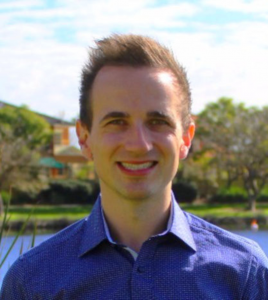By Dr Andrew Leech FRACGP MBBS BSc DCH
In 2019, Dr Andrew Leech was recognised for his commitment to patient-centred care as winner of the Health Consumer Excellence Award for Compassionate Care. Dr Leech is passionate about family health and the integral role of a GP, and believes GPs are in a unique position to offer support to patients. Here, he talks about the art of compassion in healthcare.
How do patients like to be understood and treated when they see a medical professional?
We are generally taught, as doctors, that taking a good history about symptoms, performing a physical examination, and offering evidence based, relevant treatment, makes a good doctor.
I now realise that medicine is a true blend of art amongst all the science. The balancing act between really understanding the patient as well as treating them is not an easy one. Medical schools are trying harder to teach this concept, but it comes with time, experience and feedback from your peers and from patients themselves.
The skill of understanding the person as a whole, and not just for their presenting complaint, probably takes a lifetime to master. We are complicated beings with many facets to what drives us. We depend on countless external and internal stimuli to function and thrive.
Despite all this, I have learnt that there are some beneficial skills that give patients hope, even when it may appear that all hope is lost. Active listening is a good start, but listening with empathy, understanding and compassion helps us to not only grasp the problem and build a therapeutic relationship, it helps guide treatment.
Patients definitely open up more when they are faced with some level of kindness. These may not seem like skills as much as a core human emotion that we all have the ability to possess. But the problem is we are busy, and amongst chaotic days filled with challenges it can be mentally fatiguing being a doctor, and therefore the emotional side of medicine can be stripped away.
I often feel we owe more than just our attention to patients. The Latin origin of the word doctor is ‘to teach’, and this rings true as we try to help educate our patients on the human body and why something might be changing for them. I think doctors can get caught up using quite funny language. We forget that this makes little sense. I am often caught out with this, only the other day the patient looked puzzled when I said they had a ‘carotid stenosis’. Part of the art of medicine is in the communication and wording of how we educate, therefore it may take different words to get a point across, diagrams, handouts, even seminars or workshops, online resources and social media.
Patients are becoming increasingly ‘educated’ in this era of information technology. I feel my role in this is to weave through the information and present the most logical, evidence-based solution. Adding compassion to this discussion means patients often feel ‘you get them’, or at least that you’re listening. We may not have all the answers, but if we walk this journey together then life might be just a little bit easier.
*This article was originally published in Health Matters





